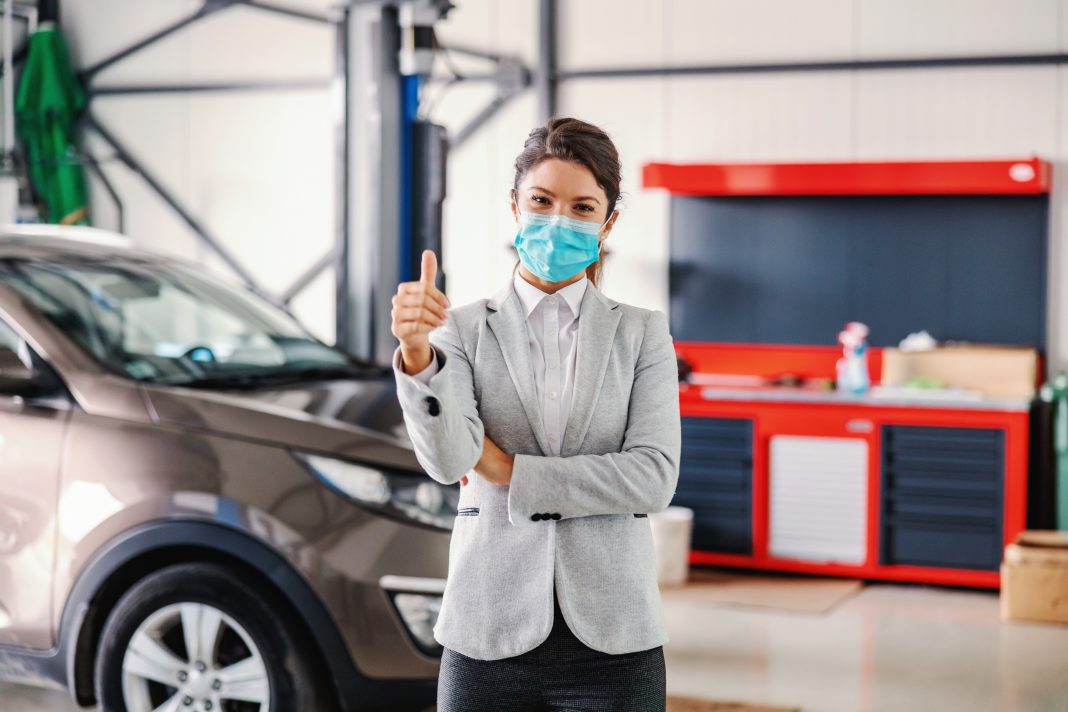With the full regimen of vaccinations in the arms of more than 45% of Americans, a broad reopening is beginning to take shape. Fourteen states still require unvaccinated people to wear masks (as of June 18) but that will change as uptake continues. Nationwide, people are beginning to resume activities that have been neglected or postponed by COVID-19 restrictions and concerns.
Fortunately, “essential business” status has kept nearly all service departments operating throughout the pandemic but with significant changes in how the experience is provided. Loosening restrictions is welcome by the vast majority, but how will it affect day-to-day operations in the service drive and the shop? What will go back to ‘normal’ and what should be a permanent change?
Vehicle pickup and delivery is permanent
The mass introduction of vehicle pickup and drop-off for service appointments surged during the throes of lockdowns and fears of getting sick. It’s likely service departments have already seen the engagement rates for concierge services shrink back somewhat, but there will always be a segment of service customers who expect the option for vehicle pickup for their appointment.
The good news is that the bulk of customers who want concierge are willing to pay for it. For service managers, it means streamlining your staffing to be able to perform the pickups and drop-offs to satisfy these customers, and it also requires maintaining a reliable scheduling method for them.
Sanitizing vehicles should stay… for now
In May last year, 70% of Americans were worried about the virus. Amid CDC recommendations and concerns by customers, vehicle sanitization became a common practice in the service department for every vehicle. Today, only 40% of Americans are concerned about the virus, but it’s not time to stop sanitizing yet.
With 4 in 10 customers still concerned, maintaining a strong health and safety protocol will keep cautious customers satisfied and less hesitant about a visit. Since it isn’t any harm or inconvenience for the more confident car owner, it pays to keep doing it for every car until hesitancy drops much further.
Staffing is a new animal
For service department staffing, the low rate of overlap in positions can leave the whole team a little overwhelmed if someone calls in sick. However, that’s precisely what service managers should continue to encourage to prevent a possible outbreak in their store and community, keeping in mind the consequences to health, revenue, and reputation if they’re the epicenter for an outbreak. Sick staff should be encouraged to stay home, and they should be sent home if they come in ill.
It’s a good practice to begin training the next generation of dealership staff in ‘junior’ positions at this time. That works for service advisors, technicians, parts people, cashiers, office staff, and any other position. It will cut into the net profit for the month on a regular basis but it’s insurance against a major disruption if a few people come down sick.
What about masks?
Masking continues to be a hot topic, and it’s best addressed as a complete management team. The CDC guidelines and state mandates are an excellent baseline that should be encouraged and enforced where necessary. But where masks are no longer required by government, there will still be some that continue usage.
Clearly, a person’s personal concern for safety should not be dismissed, and for those who want to continue wearing masks at work, it’s best not to make an issue of it. Expect that masks will come out more frequently than ever before when cold and flu season comes around. It could be a relatively normal practice to wear face masks for the coming years.
These are issues that service managers haven’t had to face in the past, and both advice and regulations will continue to change in the months and years ahead. By sticking with the essentials closely and being flexible with non-essentials, service managers can keep their department flowing and producing with little disruption.
Did you enjoy this article from Jason Unrau? Please share your thoughts, comments, or questions regarding this topic by submitting a letter to the editor here, or connect with us at newsroom@cbtnews.com.
Be sure to follow us on Facebook and Twitter to stay up to date or catch-up on all of our podcasts on demand.
While you’re here, don’t forget to subscribe to our email newsletter for all the latest auto industry news from CBT News.










